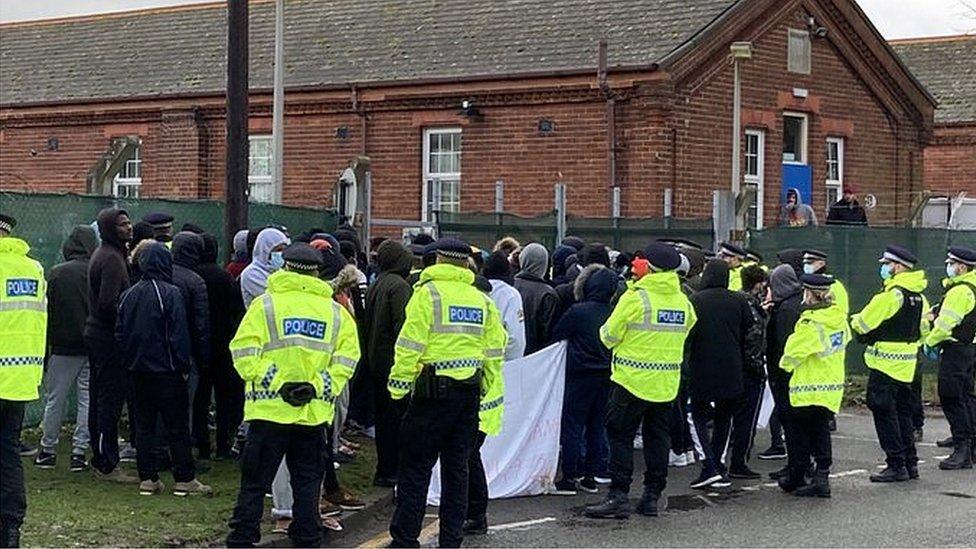Napier Barracks: Call to close 'unlawful' asylum centre
- Published
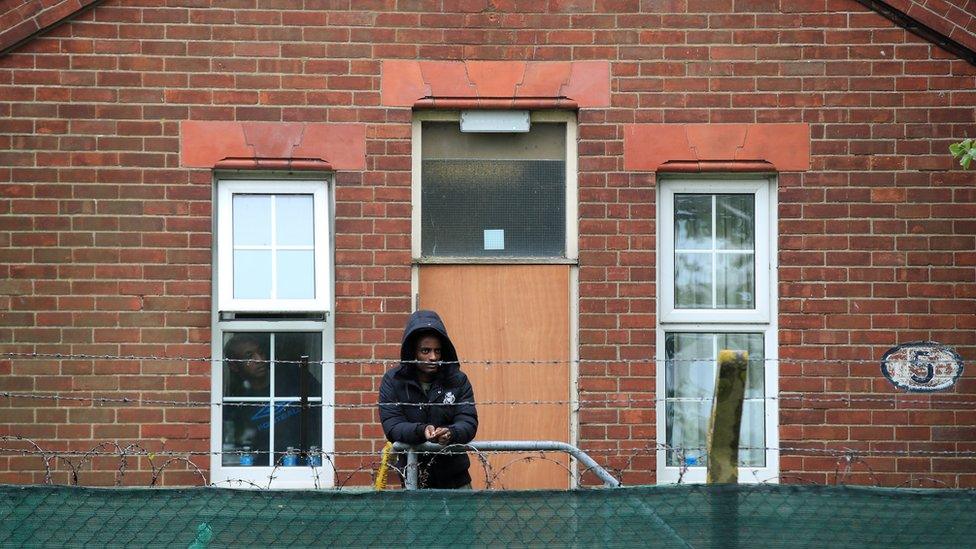
A High Court judge criticised the use of detention-like facilities for those who should not be detained
Campaigners have called for Kent's controversial Napier Barracks asylum centre to be shut down after the High Court ruled its use was unlawful.
The site has seen a coronavirus outbreak, a fire, repeated protests and legal action by six men who argued it breached their human rights and won.
Human rights group Liberty said the government's only response should be to close the ex-military site immediately.
The Home Office has said the site in Folkestone will continue to operate.
The court heard of a string of failures at the site including being overcrowded, having poor ventilation and run-down buildings, significant fire risks, "filthy" facilities and a decrepit' isolation block not fit for habitation - plus dormitories that allowed coronavirus to spread.
A Covid-19 outbreak at the barracks earlier this year affected nearly 200 men and a disturbance saw fire break out.
Home Secretary Priti Patel and immigration minister Chris Philp both previously defended the use of such sites, despite the Home Office facing criticism.
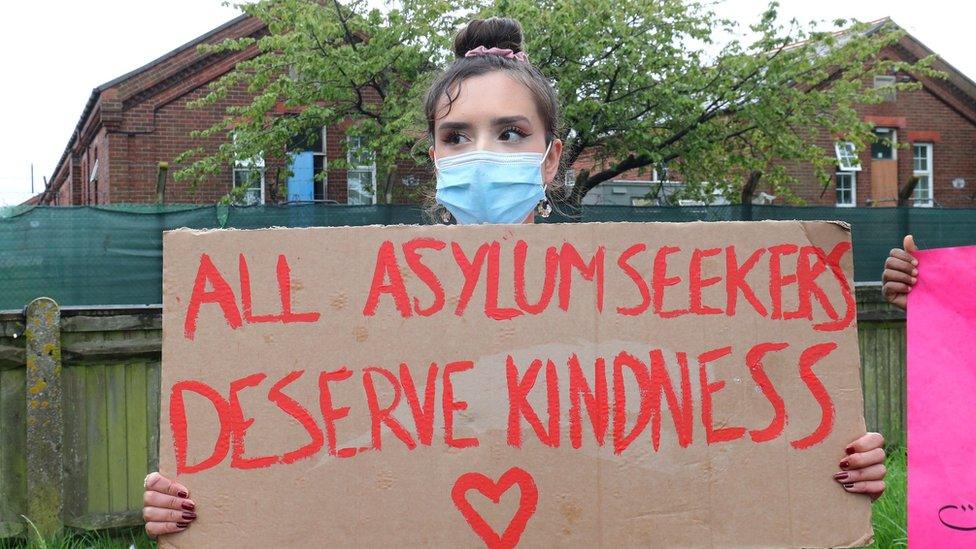
The site has seen repeated protests in support of those housed there
Liberty lawyer Lara Ten Caten said: "We should all have somewhere safe to shelter, where our dignity is respected and where our needs are met.
"Today's judgment leaves no doubt that Napier Barracks falls far short of this, and the government's only response can be to close it down immediately."
She said the site was overcrowded and unhygienic, and the judge had made it clear a coronavirus outbreak was inevitable - a clear breach of people's fundamental right to respect for human dignity.
She said: "The government was well aware of this, and yet it ignored public health advice and continued to house asylum seekers in unacceptable conditions - exposing them to great risk."
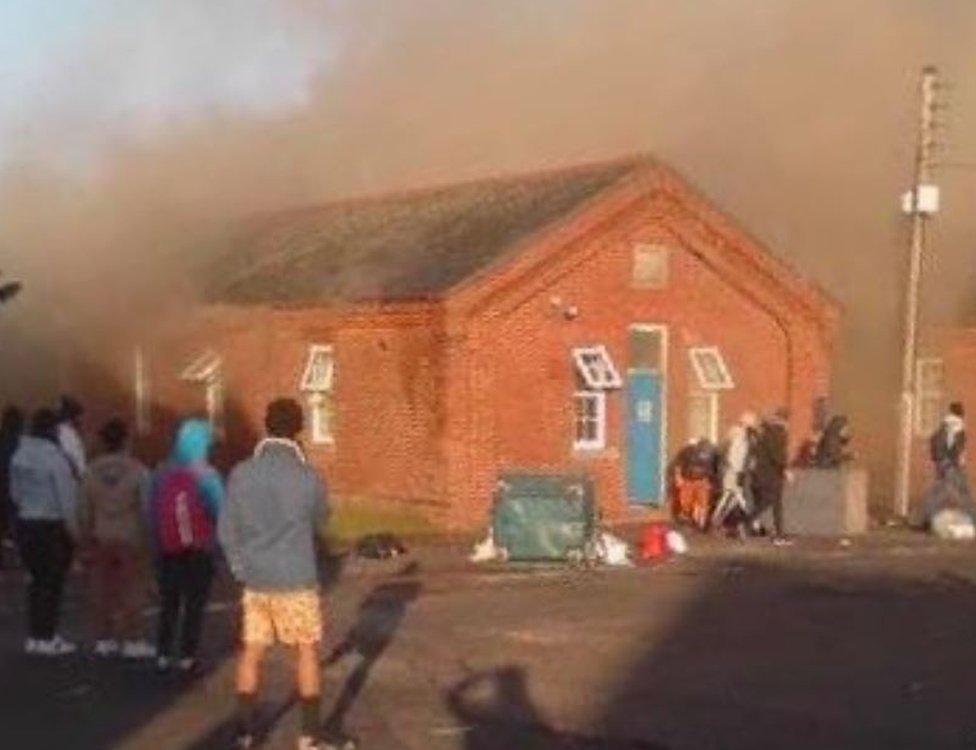
A fire broke out at the site following a disturbance earlier this year
Refugee Action said the judgment had vindicated all those who told the government that "recklessly forcing hundreds of refugees into crowded camps during a killer pandemic was a gamble with people's lives".
Head of campaigns Mariam Kemple said: "It's high time ministers found some compassion in how they treat people seeking asylum, many of whom have fled violence, persecution and torture."
She said refugees should be housed in communities, close to the cultural, health and legal support they need.
Satbir Singh, chief executive of the Joint Council for the Welfare of Immigrants, said the ruling showed the government was "reckless with people's lives".
He added: "Abandoned, ramshackle military barracks are totally unsuitable sites to house anyone, much less victims of torture or trafficking and people fleeing atrocities."

Follow BBC South East on Facebook, external, on Twitter, external, and on Instagram, external. Send your story ideas to southeasttoday@bbc.co.uk.
Related topics
- Published3 June 2021
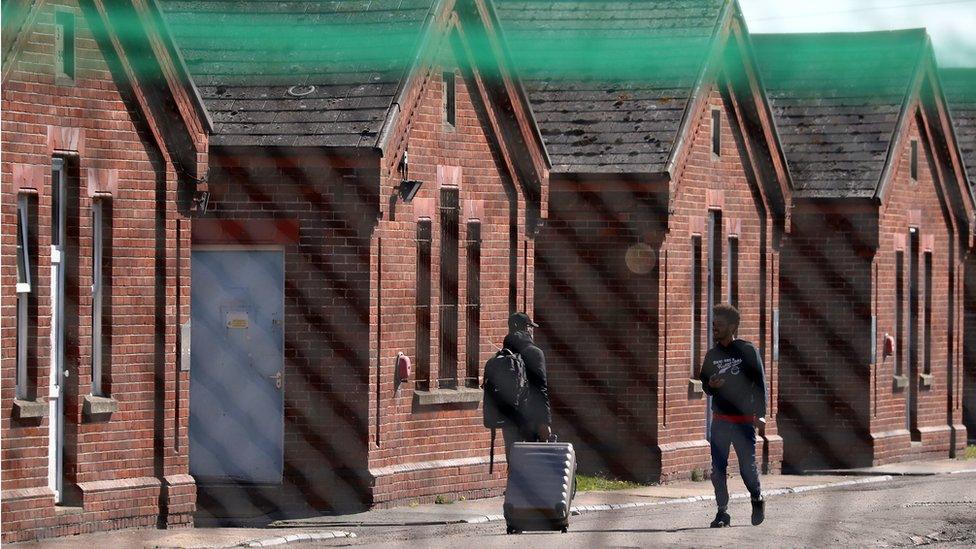
- Published6 February 2021
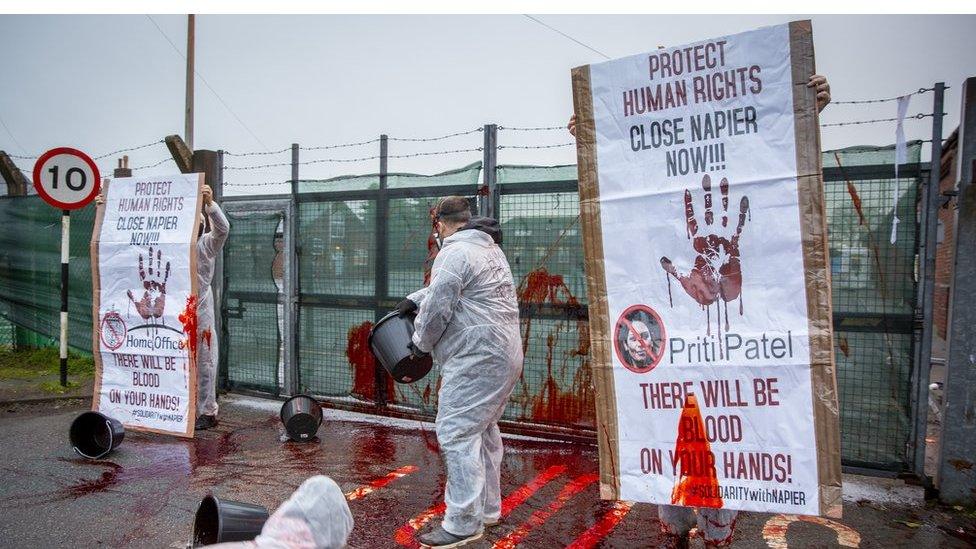
- Published3 February 2021
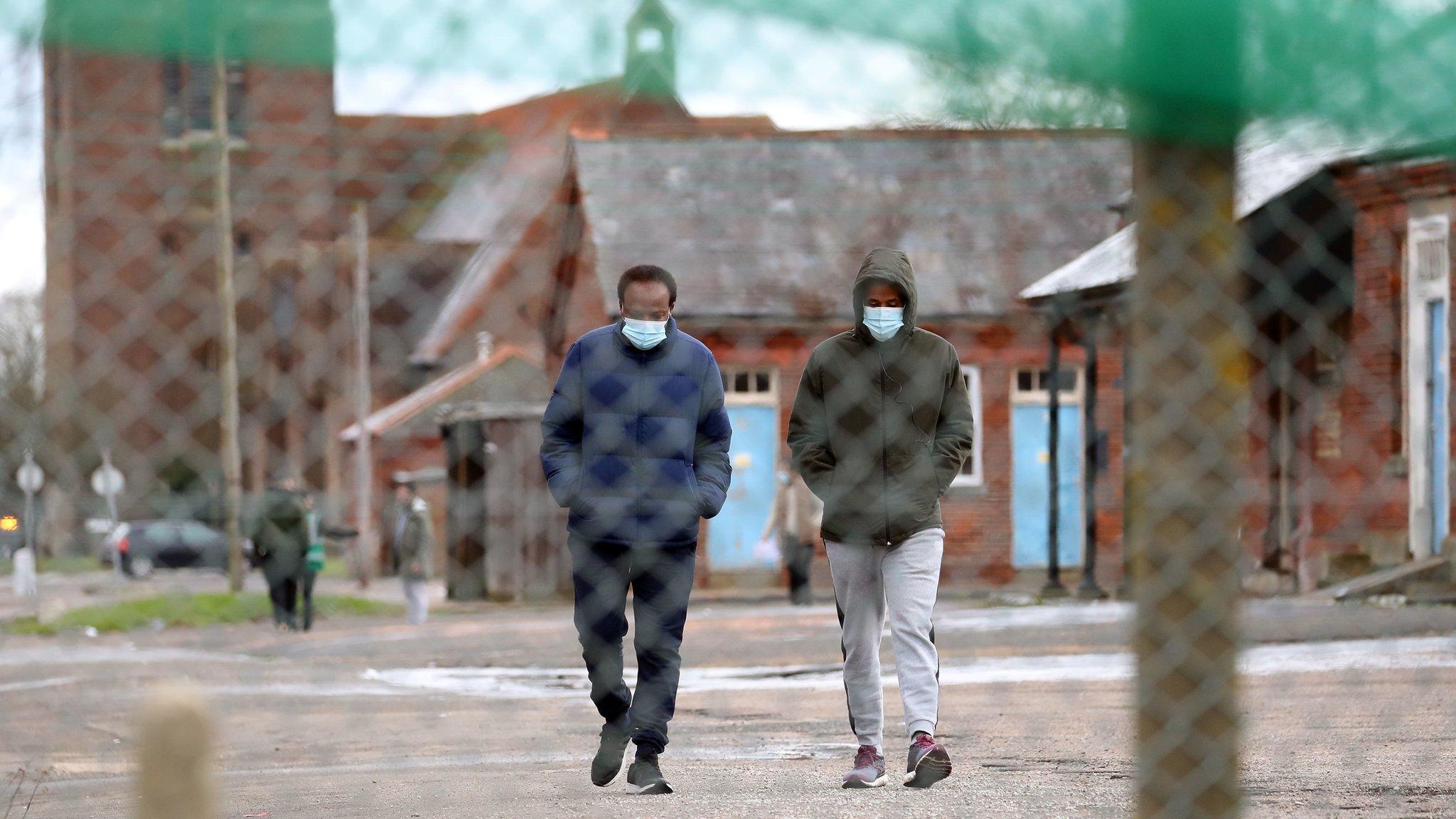
- Published31 January 2021
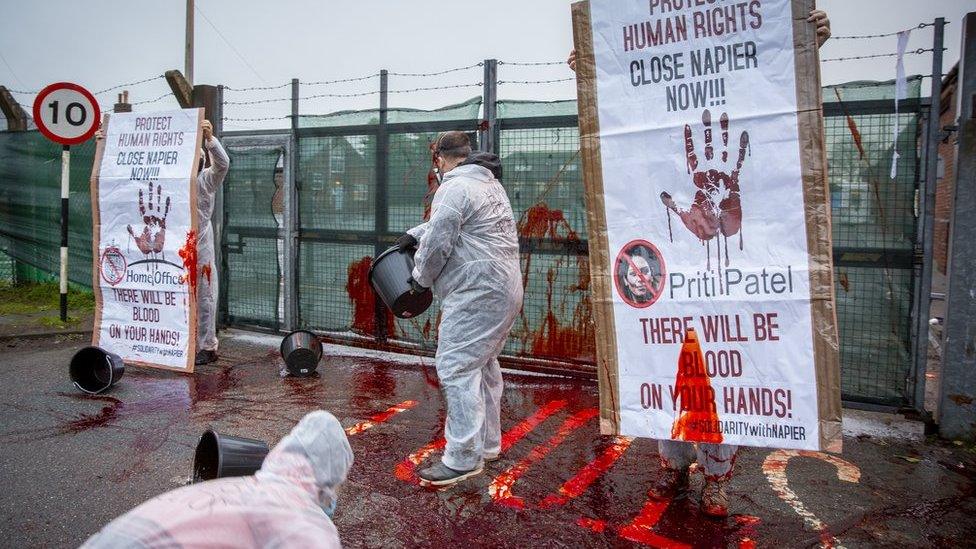
- Published26 January 2021
